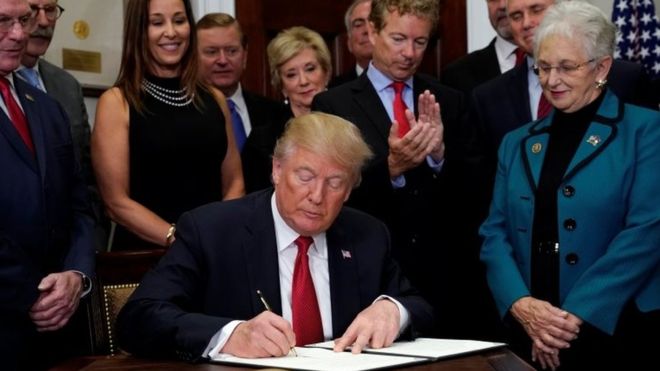
The electability of Donald Trump as President of the United States in 2016 was built on support from voters on the center to far-right of the ideological spectrum.
Backlash to progressive policies, like those championed by President Barack Obama’s radically left administration had left many Americans, scores of whom had been victimized by the false promises and outright lies regarding healthcare accessibility, seeking new solutions in regard to choice and market competition for their medical care dollars.
America would see the eventual election of Trump as President and the early days of his administration were decidedly focused on “comprehensive” healthcare reform.
With stewardship on the issue from former GOP Chairman and then White House Chief of Staff Reince Priebus and other establishment Republican characters, Congress wasted 23 legislative days on the roundly denounced “American Healthcare Act.”
Criticized as “Obamacare lite,” the failed bill amounted to another competition-crushing subsidy for the healthcare insurance industry at an estimated cost of $600 billion to the American taxpayer.
That’s not to say that President Trump has not scored some victories for the American people regarding healthcare. Trump did succeed in removing the Obamacare “individual mandate” as part of the Tax Cuts and Jobs Act legislation, which penalized citizens for not having healthcare.
Even more importantly, in May of 2018, Trump signed the Right to Try legislation into law which allows terminally ill patients access to experimental medical treatments not yet approved by the Food and Drug Administration (FDA).
"Thousands of terminally ill Americans will finally have hope, and the fighting chance, and I think it's going to better than a chance, that they will be cured, they will be helped, and be able to be with their families for a long time, or maybe just for a longer time," Trump said at the time.
Despite these positive steps, there are many obstacles still present on both the patient and provider side of things.
Unfortunately, Trump's recent Executive Order on so-called "price transparency' that seeks to publish rates, curiously aligns him with the kind of healthcare reforms that the Center for American Progress, the architect of Obamacare, have been calling for.
While publishing rates insurers negotiate with hospitals and doctors sounds good on the surface, how it may wind up working in practical application is much more concerning. The order fails to provide meaningful transparency according to critics including former Congressman Ernest Istook (R-OK), who recently wrote in an op-ed, "It sounds simple to reveal prices to a government agency that then would make them available to the public. But the infrastructure and paperwork to implement this will become a new Washington swamp."
In addition, this technique could have the effect of actually raising costs, as a study by the Journal of the American Healthcare Association of employee healthcare decisions finds that pricing tools actually increase the cost of care in many cases. Historically, so-called price transparency has also limited competition and enabled price fixing as generic drug company pricing has exhibited in the not too distant past.
This pricing info may also not necessarily be useful to the average consumer who has a limited knowledge of what most of it all means while conversely, published rates can be useful for profiteers in the healthcare market.
Even the Federal Trade Commission has previously warned these changes will provide only marginal benefit to consumers while potentially reducing competition. Not to mention that forcing healthcare providers to publicize their secretly negotiated rates is, by definition, anti-competitive and in direct opposition to our nation’s free market healthcare system.
Although Trump’s administration views this mandate as an important push towards creating a healthcare system that benefits patients in the long run, the intent misses the mark and puts the White House in a vulnerable position. While he may have the best of intentions here, the President’s Executive Order should be reexamined for the good of America’s sick and injured. After all, Trump ran on repealing and replacing Obamacare, so why would he be taking policy advice from the think tank behind that disastrous healthcare system now?





Leave a Reply
Thank you for your response.
Please verify that you are not a robot.